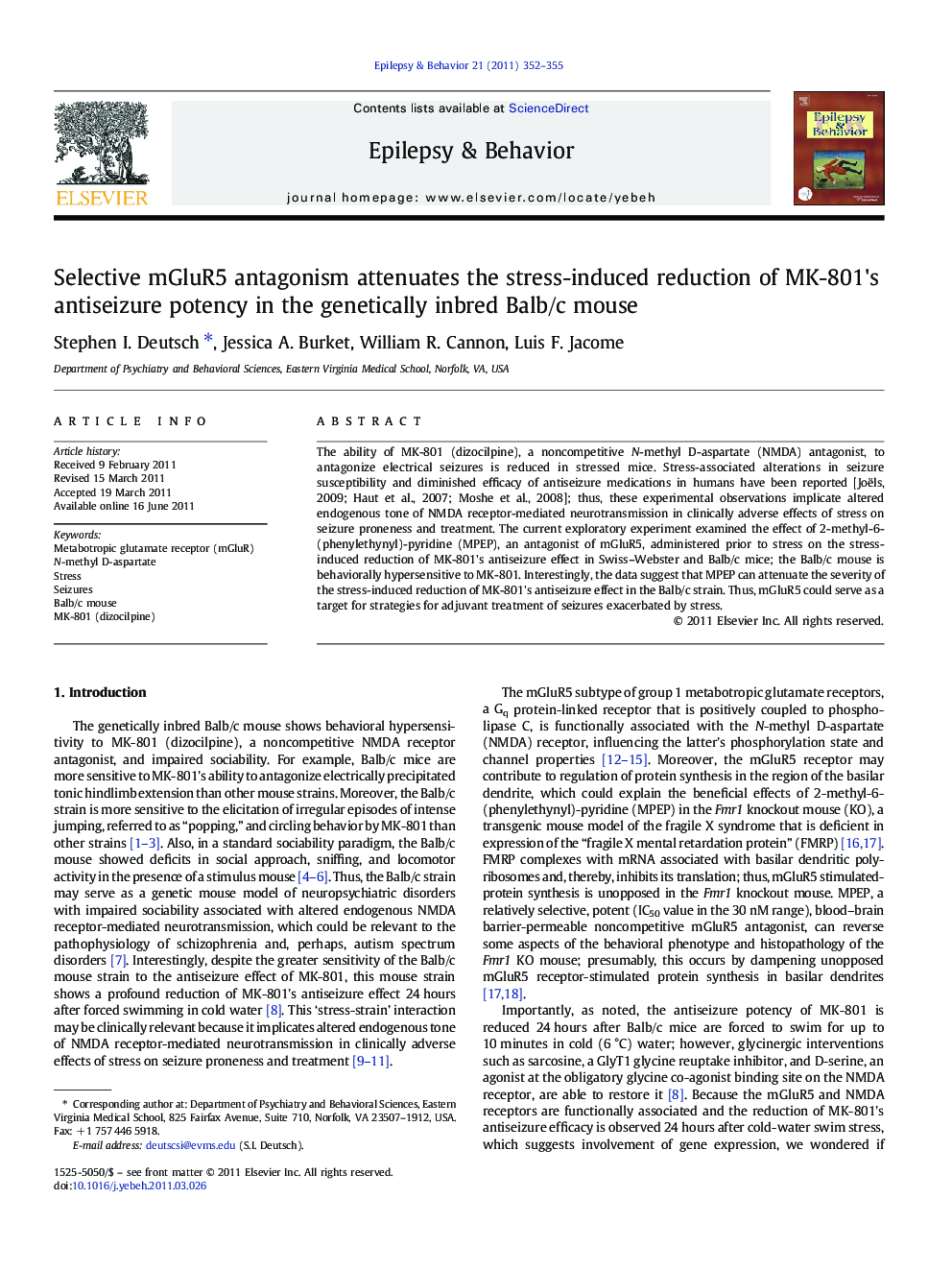| Article ID | Journal | Published Year | Pages | File Type |
|---|---|---|---|---|
| 6014314 | Epilepsy & Behavior | 2011 | 4 Pages |
The ability of MK-801 (dizocilpine), a noncompetitive N-methyl D-aspartate (NMDA) antagonist, to antagonize electrical seizures is reduced in stressed mice. Stress-associated alterations in seizure susceptibility and diminished efficacy of antiseizure medications in humans have been reported [Joëls, 2009; Haut et al., 2007; Moshe et al., 2008]; thus, these experimental observations implicate altered endogenous tone of NMDA receptor-mediated neurotransmission in clinically adverse effects of stress on seizure proneness and treatment. The current exploratory experiment examined the effect of 2-methyl-6-(phenylethynyl)-pyridine (MPEP), an antagonist of mGluR5, administered prior to stress on the stress-induced reduction of MK-801's antiseizure effect in Swiss-Webster and Balb/c mice; the Balb/c mouse is behaviorally hypersensitive to MK-801. Interestingly, the data suggest that MPEP can attenuate the severity of the stress-induced reduction of MK-801's antiseizure effect in the Balb/c strain. Thus, mGluR5 could serve as a target for strategies for adjuvant treatment of seizures exacerbated by stress.
